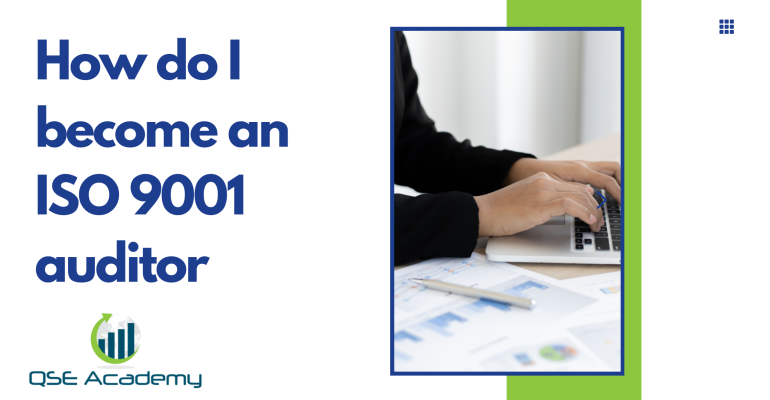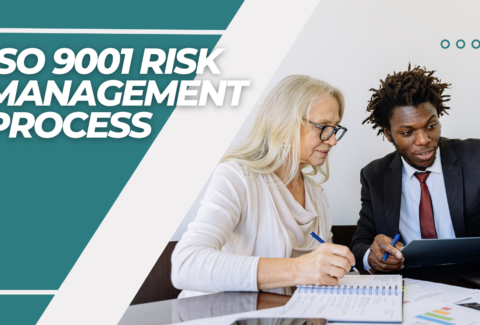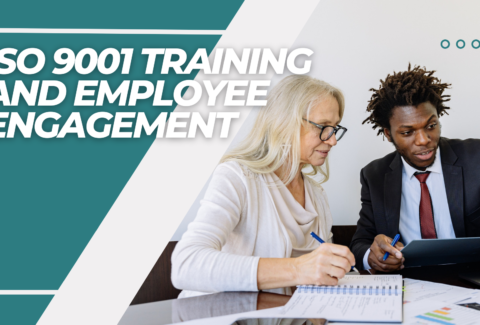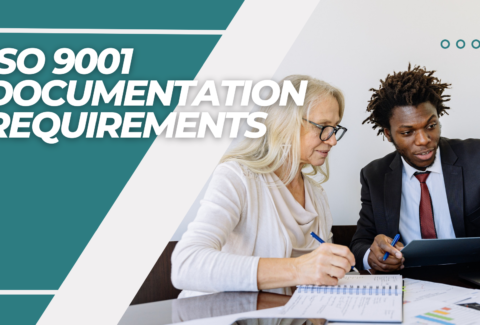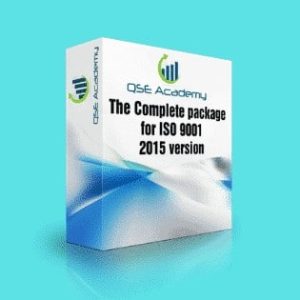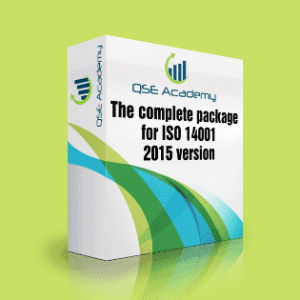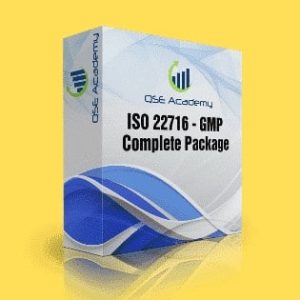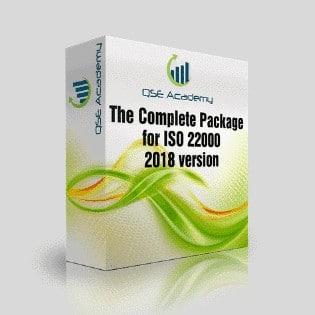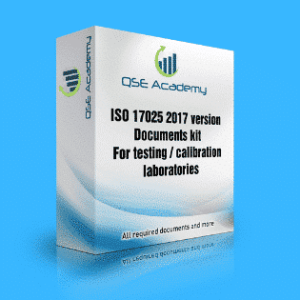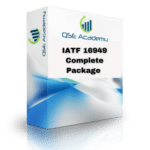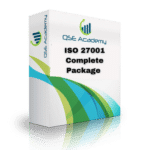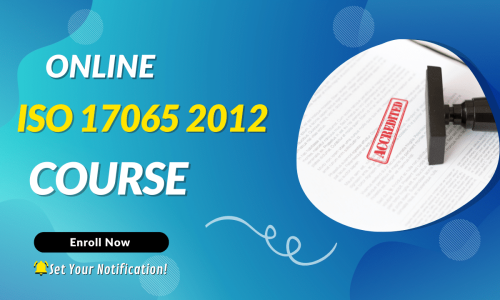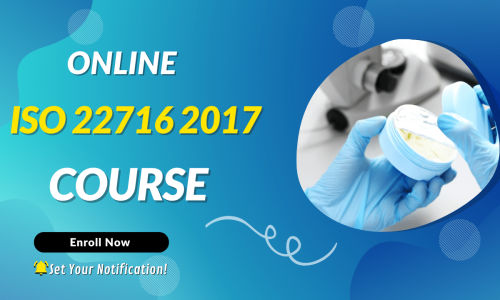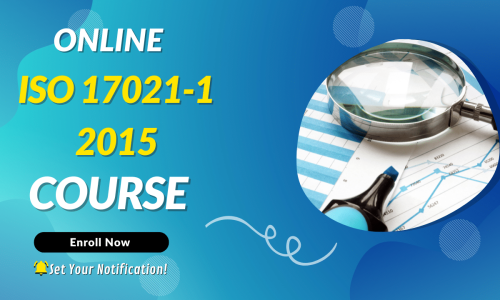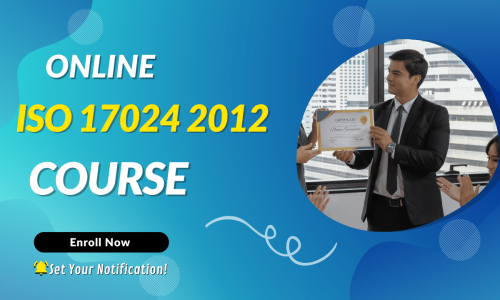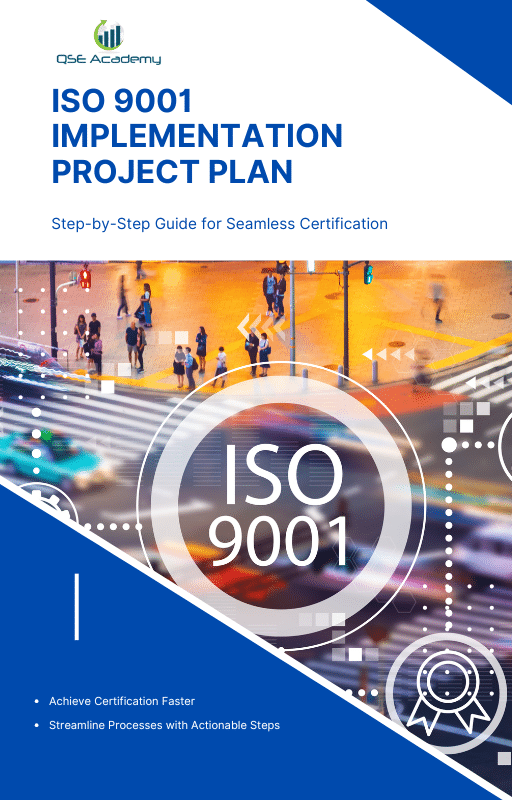How do I become an ISO 9001 auditor?
How do I become an ISO 9001 auditor?
If you’ve ever thought about becoming an ISO 9001 auditor, you’re probably curious about where to start. Maybe you’re passionate about helping businesses improve, or perhaps you’ve heard about the career opportunities that come with this role. Either way, you’ve come to the right place.
An ISO 9001 auditor plays a critical role in evaluating and improving organizations’ quality management systems (QMS) to ensure they meet the globally recognized ISO 9001 standard. But how exactly do you become an ISO 9001 auditor? What skills, training, and experience do you need to step into this rewarding career?
In this article, we’ll break down everything you need to know, from understanding the ISO 9001 standard to completing the necessary training and gaining practical experience. Whether you’re just starting your career or looking to pivot into a new role, this step-by-step guide will show you how to become an ISO 9001 auditor and make a positive impact in the world of quality management. Ready to dive in? Let’s get started!
What Does an ISO 9001 Auditor Do?
Before we dive into how to become an ISO 9001 auditor, let’s take a moment to understand what the role actually involves. Knowing what an ISO 9001 auditor does will help you decide if this career is the right fit for you. Spoiler alert: It’s not just about ticking boxes—it’s about making a real difference in how organizations operate.
Understanding the Role of an ISO 9001 Auditor
An ISO 9001 auditor is responsible for evaluating an organization’s quality management system (QMS) to ensure it complies with the ISO 9001 standard. Think of it like being a detective for quality. You’ll review processes, inspect documentation, and talk to employees to make sure everything aligns with the standard’s requirements.
But being an ISO 9001 auditor isn’t just about finding problems—it’s about helping businesses improve. When you become an ISO 9001 auditor, you’re guiding organizations to enhance their efficiency, reduce waste, and deliver consistent results to their customers. Your feedback can make a tangible impact on how a business operates.
Types of ISO 9001 Auditors
There are different kinds of ISO 9001 auditors, each with a slightly different role:
- Internal Auditors
These auditors work within an organization, ensuring its processes stay aligned with ISO 9001. If you’re already part of a company that’s ISO 9001 certified, becoming an internal auditor can be a great first step. - External Auditors
External auditors work for certification bodies or independently. They visit organizations to conduct audits that determine whether the company qualifies for or maintains ISO 9001 certification. - Lead Auditors
A lead auditor oversees a team of auditors during large or complex audits. This is often the next level once you’ve gained significant experience as an auditor.
Key Responsibilities of an ISO 9001 Auditor
If you want to become an ISO 9001 auditor, here’s what you can expect to do on the job:
- Plan and Conduct Audits: Review the organization’s QMS, assess compliance with ISO 9001, and identify areas for improvement.
- Interview Employees: Talk to team members at all levels to understand how the processes are implemented in practice.
- Analyze Documentation: Check policies, procedures, and records to ensure everything is clearly documented and followed consistently.
- Provide Feedback: Offer constructive insights to help organizations improve their processes and maintain compliance.
Why Does This Role Matter?
ISO 9001 auditors play a vital role in ensuring businesses maintain high standards of quality. When you become an ISO 9001 auditor, you’re not just checking off requirements—you’re helping organizations achieve their goals, build trust with customers, and improve their reputation. It’s a role that combines technical expertise with the satisfaction of making a real difference.
Now that you know what an ISO 9001 auditor does, let’s explore why this career is so rewarding and why more people are choosing to pursue it. Ready to find out? Let’s keep going!
Why Become an ISO 9001 Auditor?
So, you’re curious about how to become an ISO 9001 auditor, but why should you take the leap? What makes this career worth pursuing? Let’s talk about the many reasons why becoming an ISO 9001 auditor is not only a smart professional move but also a deeply rewarding experience.
A Growing and In-Demand Career
Quality is at the heart of every successful business, and companies across industries are constantly striving to meet international standards like ISO 9001. As a result, the demand for qualified ISO 9001 auditors is growing. When you become an ISO 9001 auditor, you position yourself as an expert in a field that’s essential for industries like manufacturing, technology, healthcare, and more.
Imagine being the person who helps a business streamline its processes, improve its efficiency, and gain a globally recognized certification. Not only is the role in demand, but it also has a significant impact on how companies operate—and that’s pretty exciting.
A Career That Makes a Difference
One of the best parts of becoming an ISO 9001 auditor is knowing that your work truly matters. Your job isn’t just about identifying areas of non-compliance; it’s about helping organizations improve. When you guide a business toward better processes, you’re improving their ability to deliver high-quality products or services to their customers.
Think about it: by ensuring a company meets ISO 9001 standards, you’re helping them build trust with their clients, reduce waste, and operate more efficiently. That’s a win for everyone involved.
Opportunities for Professional Growth
When you become an ISO 9001 auditor, you’re opening the door to endless learning opportunities. Every audit is a chance to dive into a new business, industry, or sector. One day, you might be auditing a tech company, and the next, you’re working with a logistics firm. The variety keeps things fresh and exciting.
Plus, as you gain more experience, you can grow into advanced roles, such as a lead auditor or even a consultant helping organizations prepare for their audits. The career path is flexible and full of possibilities, which is great if you enjoy developing your skills and taking on new challenges.
Building a Network Across Industries
As an ISO 9001 auditor, you’ll work with a wide range of people—business leaders, quality managers, and team members across industries. Over time, you’ll build a strong professional network, which can open doors to even more career opportunities. This is one of the hidden benefits of becoming an ISO 9001 auditor—you’ll always be meeting new people and learning from their unique experiences.
Transferable Skills That Go Beyond Auditing
When you become an ISO 9001 auditor, you’ll develop skills that are valuable in nearly every profession. These include:
- Analytical Thinking: Evaluating processes and identifying areas for improvement sharpens your ability to think critically.
- Attention to Detail: Audits require precision, which makes you more thorough and focused in everything you do.
- Communication Skills: Explaining findings and working with teams to improve processes helps you become a better collaborator and communicator.
These skills don’t just make you a great auditor—they make you an asset in any role or industry.
Becoming an ISO 9001 auditor is more than just a career choice—it’s an opportunity to make a lasting impact on businesses and the people they serve. If you’re passionate about quality and love the idea of helping organizations reach their potential, this might just be the perfect path for you.
Ready to find out exactly how to become an ISO 9001 auditor? Let’s explore the step-by-step process in the next section so you can get started on this exciting journey!
How to Become an ISO 9001 Auditor
If you’re ready to dive into this rewarding career, you’re probably wondering about the exact steps to become an ISO 9001 auditor. Don’t worry—it’s not as overwhelming as it might seem! With the right guidance and effort, you can start your journey toward becoming a skilled professional who helps organizations achieve excellence. Let’s break it down step by step.
Step 1: Understand the ISO 9001 Standard
The first and most crucial step is getting familiar with ISO 9001 itself. After all, to become an ISO 9001 auditor, you need to fully understand what the standard is all about. ISO 9001 outlines the framework for quality management systems (QMS), focusing on principles like customer satisfaction, leadership, and continual improvement.
Start by reading the ISO 9001 standard document. While it might feel a bit technical at first, there are plenty of resources—like online courses, books, and videos—that can help you break it down. Your goal here is to understand not just the requirements of ISO 9001 but also how they apply to different industries.
Step 2: Gain Relevant Work Experience
Becoming an ISO 9001 auditor requires more than theoretical knowledge. Hands-on experience in quality management, operations, or process improvement is key. Many auditors start in roles like quality control specialists, process managers, or internal auditors before moving into ISO auditing.
For example, if you’ve worked in a role where you managed workflows, analyzed data, or ensured compliance with company policies, you’re already building the skills you need to become an ISO 9001 auditor. The more experience you have with quality management systems, the better prepared you’ll be.
Step 3: Complete ISO 9001 Auditor Training
Formal training is an essential step to become an ISO 9001 auditor. Look for certified training programs that provide the knowledge and skills needed to perform audits effectively. These programs typically include:
- Internal Auditor Training: Learn how to perform audits within your own organization.
- Lead Auditor Training: This advanced course teaches you how to lead external audits and manage audit teams.
Choose a training provider accredited by recognized organizations like IRCA (International Register of Certificated Auditors) or Exemplar Global. These courses often include case studies, role-playing exercises, and real-world examples to help you apply what you learn.
Step 4: Pass the Certification Exam
After completing your training, you’ll need to pass a certification exam to demonstrate your understanding of ISO 9001 auditing. Certification bodies like IRCA or Exemplar Global offer exams that test your knowledge of the ISO 9001 standard, audit processes, and professional auditing techniques.
Preparing for the exam might involve reviewing training materials, taking practice tests, and brushing up on ISO 9001 requirements. Once you pass, you’ll receive an official certification that qualifies you to perform audits.
Step 5: Gain Audit Experience
Now that you’re trained and certified, it’s time to gain practical experience. Many aspiring auditors work alongside experienced professionals to learn the ropes and build confidence. This might involve shadowing lead auditors during external audits or conducting internal audits under supervision.
The more audits you participate in, the stronger your skills will become. This hands-on experience is invaluable as you work toward becoming a lead auditor or independent professional.
Step 6: Stay Updated and Continue Learning
The world of quality management is always evolving, and to remain effective, you need to keep learning. Standards like ISO 9001 are updated periodically, so staying informed about changes is essential. Attend workshops, read industry updates, and take refresher courses to stay ahead of the curve.
Becoming an ISO 9001 auditor takes time and dedication, but each step brings you closer to a rewarding career. By following this path, you’ll not only develop valuable skills but also have the opportunity to make a meaningful impact on the organizations you work with.
Ready to take the leap and become an ISO 9001 auditor? The next section will explore the key skills you’ll need to excel in this role and why they’re so important. Let’s keep going!
Key Skills You Need to Become an ISO 9001 Auditor
If you’re on the path to become an ISO 9001 auditor, you’re probably wondering what skills you’ll need to succeed. Sure, training and certification are essential, but having the right skills will set you apart and make you a truly effective auditor. The good news? Many of these skills are things you can develop over time with practice and experience. Let’s take a closer look.
1. Attention to Detail
As an ISO 9001 auditor, your job is to evaluate an organization’s quality management system (QMS) with a fine-tooth comb. This means you’ll need a sharp eye for detail. Whether you’re reviewing documentation, observing processes, or conducting interviews, the ability to spot inconsistencies or areas for improvement is key.
For example, if a company claims to have a specific procedure for handling customer complaints, you’ll need to ensure that their records actually show it’s being followed consistently. Paying attention to these small but important details is what makes a great auditor.
2. Analytical Thinking
To become an ISO 9001 auditor, you’ll also need strong analytical skills. Auditing isn’t just about identifying what’s wrong—it’s about understanding how things work, why issues arise, and how they can be fixed. You’ll need to connect the dots, evaluate processes, and make recommendations that add real value to the organization.
Imagine you’re auditing a manufacturing company and notice delays in their production process. As an auditor, you’d analyze the situation, identify potential bottlenecks, and suggest ways to improve efficiency while maintaining compliance with ISO 9001.
3. Communication Skills
Auditing is as much about people as it is about processes. To become an ISO 9001 auditor, you’ll need excellent communication skills to interact with employees, managers, and leadership teams. You’ll be asking questions, explaining findings, and sometimes delivering feedback that may be difficult for organizations to hear.
The key is to be clear, respectful, and solution-oriented. For example, instead of simply pointing out that a procedure isn’t compliant, you could explain why it matters and how they can address the gap. Strong communication builds trust and helps organizations see you as a partner in their improvement journey.
4. Problem-Solving Abilities
Audits often reveal challenges that organizations need to address. As an ISO 9001 auditor, your ability to think critically and offer practical solutions will be highly valued. While you’re not there to fix the problems yourself, you’ll play a vital role in guiding businesses toward effective resolutions.
For instance, if an organization struggles with inconsistent product quality, you might identify gaps in their training program or quality control checks and recommend targeted improvements.
5. Organizational Skills
Auditing involves a lot of moving parts—scheduling interviews, reviewing documents, writing reports, and meeting deadlines. To become an ISO 9001 auditor, you’ll need strong organizational skills to manage your workload effectively and ensure audits run smoothly.
For example, during a multi-day audit, you’ll need to stick to a tight schedule while balancing interviews, inspections, and report writing. Being organized helps you stay on track and deliver thorough results.
6. Adaptability
Every organization is different, and no two audits are exactly the same. To become an ISO 9001 auditor, you’ll need the ability to adapt to different industries, company cultures, and challenges. Whether you’re auditing a small family-owned business or a multinational corporation, being flexible and open-minded will help you succeed.
7. Commitment to Lifelong Learning
Finally, one of the most important skills for an ISO 9001 auditor is a commitment to continuous learning. Standards like ISO 9001 evolve over time, and staying up to date with changes is essential. By keeping your knowledge fresh and staying curious, you’ll remain a trusted expert in your field.
Building these skills will not only help you become an ISO 9001 auditor but also ensure you thrive in the role. Each skill adds to your ability to conduct thorough, insightful audits and make a meaningful impact on the organizations you work with. In the next section, let’s talk about the challenges and rewards of becoming an ISO 9001 auditor—it’s a career full of growth, learning, and opportunities. Let’s keep going!
Challenges and Rewards of Becoming an ISO 9001 Auditor
Like any career, choosing to become an ISO 9001 auditor comes with its own set of challenges and rewards. Understanding what to expect can help you decide if this is the right path for you. Let’s break it down together—the ups, the hurdles, and why this career is so worth it.
Challenges of Becoming an ISO 9001 Auditor
- Keeping Up with Evolving Standards
ISO 9001 isn’t static—it evolves to reflect changes in industries and global business practices. As an auditor, you’ll need to stay on top of updates and revisions to the standard. For example, the most recent major update in 2015 introduced a stronger focus on risk-based thinking and leadership involvement. While it can be a challenge to keep up, it also means you’re always learning and growing. - Handling Complex Audits
Audits can vary widely in complexity depending on the size and scope of the organization. Larger companies with multiple departments may require several days of auditing and detailed analysis. Managing these larger projects, especially under tight deadlines, can feel overwhelming at times. But every audit is a chance to improve your skills and make a meaningful impact. - Delivering Tough Feedback
When you become an ISO 9001 auditor, one of your responsibilities is identifying areas where organizations fall short. This can sometimes mean delivering feedback that’s hard for teams to hear. The key is to approach these conversations with tact, focusing on how improvements can benefit the business rather than simply pointing out flaws. - Travel and Time Management
If you’re an external auditor, you may need to travel frequently to visit client sites. While this can be exciting, it can also disrupt your routine and require strong time management skills. Balancing multiple audits and meeting deadlines will test your organizational abilities—but it’s all part of the adventure!
Rewards of Becoming an ISO 9001 Auditor
- Making a Positive Impact
One of the greatest rewards of becoming an ISO 9001 auditor is knowing that your work helps organizations improve. Whether it’s streamlining processes, reducing waste, or boosting customer satisfaction, your efforts lead to real, measurable results. It’s incredibly satisfying to see how your guidance helps businesses thrive. - A Diverse and Exciting Career
When you become an ISO 9001 auditor, no two days are ever the same. You’ll work with a variety of industries, from manufacturing and tech to healthcare and retail. Each organization brings new challenges, people, and opportunities to learn. This variety keeps the job fresh and engaging. - Opportunities for Growth
The career path for ISO 9001 auditors is filled with opportunities for advancement. As you gain experience, you might move into roles like lead auditor or consultant, where you manage audit teams or help organizations prepare for certification. There’s also the potential to branch out into related fields, such as ISO 14001 (environmental management) or ISO 45001 (occupational health and safety). - Building Valuable Skills
The skills you develop as an ISO 9001 auditor—like analytical thinking, communication, and problem-solving—are highly transferable. These abilities make you a stronger professional, whether you stay in auditing or explore other career paths. - A Sense of Achievement
Successfully completing an audit and seeing a company earn or maintain its ISO 9001 certification is deeply rewarding. You’re not just checking boxes—you’re helping organizations demonstrate their commitment to quality and customer satisfaction.
The Balance of Challenges and Rewards
While there are challenges to becoming an ISO 9001 auditor, the rewards far outweigh them. It’s a career that offers personal growth, professional development, and the chance to make a difference. If you’re passionate about quality and enjoy helping businesses succeed, this path can be incredibly fulfilling.
In the next section, we’ll bring everything together with a quick recap of what it takes to become an ISO 9001 auditor and why this role is worth pursuing. Let’s wrap it up!
Conclusion: How to Become an ISO 9001 Auditor
So, how do you become an ISO 9001 auditor? It might sound like a complex journey, but when you break it down into manageable steps, it’s completely achievable—and incredibly rewarding. Whether you’re looking to start a new career or advance in your current role, becoming an ISO 9001 auditor is a smart move if you’re passionate about quality and helping organizations succeed.
To recap, the path to becoming an ISO 9001 auditor starts with understanding the ISO 9001 standard inside and out. From there, gaining relevant experience in quality management, completing auditor training, and earning a professional certification will set you on the right track. With time and practice, you’ll develop the skills needed to evaluate organizations, guide improvements, and leave a lasting impact.
Yes, there are challenges, like staying updated on changes to the standard and managing complex audits. But the rewards—making a difference, building valuable skills, and enjoying a diverse career—make it all worthwhile. When you become an ISO 9001 auditor, you’re not just following a career path; you’re joining a field that helps businesses thrive and delivers value to customers worldwide.
If you’re someone who loves solving problems, diving into new industries, and helping others achieve their goals, this role might just be the perfect fit for you. So, are you ready to take the first step to become an ISO 9001 auditor? The opportunities are waiting—you just need to seize them!
Looking for More Resources on ISO 9001?
Looking for ISO 9001 Resources Tailored to Your Industry?
If this article helped clarify ISO 9001, take the next step with our industry-focused tools designed to simplify your certification journey:
📦 ISO 9001 Documentation Kits by Industry: Whether you’re in manufacturing, construction, consulting, or healthcare — we have complete, ready-to-use documentation tailored for your sector.
🎓 Online ISO 9001 Training: Learn how to implement ISO 9001 effectively with our easy-to-follow video lessons, real-world examples, and practical exercises.
📋 ISO 9001 Checklist: Download our step-by-step checklist to ensure your QMS meets all the 9001:2015 requirements from start to finish.
These resources are crafted to save you time, reduce stress, and help you achieve certification with confidence. Choose your industry and start now!

make ISO standards less intimidating and more approachable for everyone.
Whether it’s ISO 9001, ISO 22000, or the cosmetics-focused ISO 22716,
I’ve spent my career turning complex jargon into clear, actionable steps
that businesses can actually use. I’m not here to call myself an expert—I prefer “enthusiast” because I truly love what I do.
There’s something incredibly rewarding about helping people navigate food safety and quality management systems
in a way that feels simple, practical, and even enjoyable.
When I’m not writing about standards, you’ll probably find me playing Piano 🎹, connecting with people, or diving into my next big project💫.
- I’m an engineer specialized in the food and agricultural industry
- I have a Master’s in QHSE management and over 12 years of experience as a Quality Manager
- I’ve helped more than 15 companies implement ISO 9001, ISO 22000, ISO 22716, GMP, and other standards
- My clients include food producers, cosmetics manufacturers, laboratories, and service companies
- I believe quality systems should be simple, useful, and efficient
- Outside of work, I play piano and love learning something new every day
Let’s make ISO less about stress and more about success! 🙏

